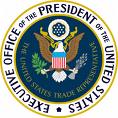 Today, the U.S. Trade Representative posted the 2013 Trade Policy Agenda and 2012 Trade Policy Report. The report covers trade negotiations existing trade agreements, and enforcement activities for all sectors.
Today, the U.S. Trade Representative posted the 2013 Trade Policy Agenda and 2012 Trade Policy Report. The report covers trade negotiations existing trade agreements, and enforcement activities for all sectors.
At first glance, one strange item stands out: the U.S. “encourages” Canada “to meet its Anti-Counterfeiting Trade Agreement obligations by providing its customs officials with ex officio authority to stop the transit of counterfeit and pirated goods throughout its territory.” (p.140) ACTA Obligations?
Later, the report notes the “United States is working with Japan and other negotiating parties to bring the ACTA into force. (p.169)
The introduction to the report includes a subsection titled “Supporting Innovation for Producers and Consumers Alike,” which is mostly about enforcing intellectual property. (For instance, “the United States will continue to defend aggressively millions of American jobs threatened by the wholesale theft of U.S. intellectual property.”)
However, the section briefly addresses balance in IP in the following passage about the TPP negotiations:
We will continue to seek constructive input from Congress and stakeholders on a wide range of trade
issues related to the protection and enforcement of copyrights, trademarks, patents, trade secrets, and other forms of intellectual property. Such input helped to shape a 2012 U.S. proposal that would, for the first time in any U.S. trade agreement, obligate TPP Parties to seek to achieve an appropriate balance in their copyright systems in providing copyright exceptions and limitations for purposes such as criticism, comment, news reporting, teaching, scholarship, and research. (page 9)
This is a welcome acknowledgement that user rights have a place in U.S. trade policy regarding intellectual property. To date, there have not been many signals other than this report and the initial announcement to which it refers.
As the interagency committee that is headed by USTR completes its annual Special 301 Review of other nations’ IPR regimes, the U.S. government has another opportunity to show it is truly committed to the promotion of a balanced copyright regime. The comments PIJIP submitted as part of the process (endorsed by IP-Justice, Electronic Frontier Foundation, Public Knowledge, Derechos Digitales, Fundación Karisma, and Consumers International, among others) suggests ways for USTR to incorporate balance into the Special 301 Report.




